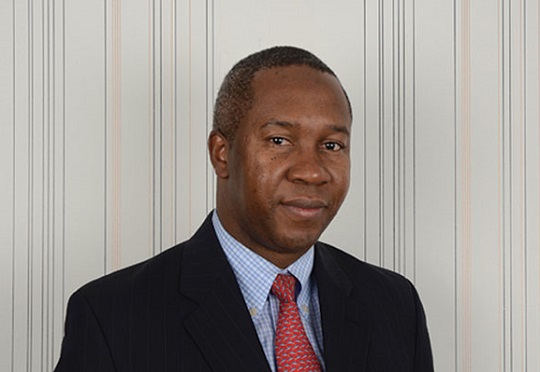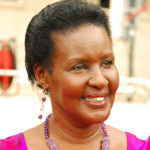Uganda is one of the countries in Sub-Saharan Africa that stand to benefit from a new World Bank financing facility that aims at supporting private sector access more affordable capital for investment.
Under the 18th replenishment of the International Development Association (IDA18) – the World Bank Group’s fund for low-income countries – a US$2.5 billion financing window is now available to catalyze private sector investment.
The new facility is spearheaded by the World Bank Group’s private sector lending arm, the International Finance Corporation (IFC) and the Multilateral Investment Guarantee Agency (MIGA) which offers political risk insurance and credit enhancement guarantees to help companies’ access credit.
Speaking in Kampala during a workshop to brief the private sector companies and Government of Uganda officials about the development, the IFC Director for Sub-Saharan Africa Oumar Seydi said that the Private Sector Window is intended to help private companies access more affordable capital for investment by providing additional guarantees to insure against risks, particularly for countries that are affected by conflict or are politically unstable.
“Many projects in emerging markets that need capital are unable to access financing because the risks are too high and the returns are not commensurate with the level of risk. The use of blended finance allows us to fill this financing gap by addressing market barriers and attract private sector investments to areas of strategic importance with high development impact,” Mr. Seydi said.
The blended finance involves the use of relatively small amounts of concessional donor funds to offset specific investment risks. The donor funds are structured as co-investments, with a probability of reflows for future investments or other uses. Several of these investments are pioneer projects which, when successful, pave the way for other investors and help create markets in high impact sectors.
Private sector investments declined by 2.5 percent in the financial year 2016/2017, a sharp contrast to the growth of 11 percent recorded the previous year, according to the 10th Uganda Economic Update released by the World Bank December 5, 2017. The decline was a result of high interest rates on loans and the uncertainty in the financial sector. In the period from June 2016 to August 2017, the weighted average commercial bank lending rate declined from 23.9 percent to 20.9 percent.
However, this rate later increased again to 22 percent. Commercial banks significantly increased their deposits, with their holdings of securities declining with the declining return. In contrast, the total value of credit extended to the private sector increased modestly, by 5.7 percent, following a strong recovery during the second half of FY 2016/17. With these developments, the ratio of private credit to GDP declined to 13.3 percent, down from 13.7 percent in financial year 2015/16.
With the new IDA18 private sector window, the World Bank Group will channel its support to companies that are interested in investing in power production and distribution, and to financial institutions to help improve access to finance, including credit lines, housing finance and SME finance. Agribusinesses are also a priority under the sub-window, with financing targeted towards increasing agricultural productivity, improving food security and increase incomes of small farmers.
“We are proud of what we have achieved in the past in Uganda, but we recognize that we must do more to have the impact that we want. To that end, we hope that IFC’s renewed strategy along with blended finance tools, including the Private Sector Window, can create conditions where we can work with a larger number of companies and across a range of sectors,” Seydi said.

Speaking on behalf of Government, the Permanent Secretary in the Ministry of Finance and Secretary to the Treasury Keith Muhakanizi, recognisedcknowledged the role of the private sector in driving development, and noted that there is need to join hands with government to finance public investments, including infrastructure which is critical to spur economic growth and boost shared prosperity. He also commended the WB Group for its continued support to Uganda.
Over the past years, the World Bank Group has extended both financial and technical assistance to make it easier to do business in Uganda. Under the ongoing Competitiveness and Enterprise Development Project (CEDP), a 3-year project implemented by the Private Sector Foundation of Uganda, the World Bank is supporting reforms geared towards improving the business environment, lowering the costs of doing business and improving competitiveness of the selected high impact sectors, particularly tourism.
On average, it takes four hours to register a business if one has all the required documents, compared to 33 days about two years ago. Land records are being ditigised following the roll-out of the Land Information System (LIS) by the Ministry of Lands, Housing and Urban Development, and to date, nine ministry zonal offices are operational bringing services nearer to the people.
Under the Matching Grant Facility, 418 enterprises have benefited from the project and 50% of these are female owned. Results are starting to manifest through improved performance of enterprises in terms of, increased productivity, income and employment as well as a catalysed access to markets.
In tourism, the World Bank’s interventions have been targeted at increasing the supply of trained tourism workforce capable of delivering competitive hospitality services. Some of the support is towards revamping curricula and training facilities at the Uganda Hotel and Tourism Institute to improve training for the pool of local staff for the hospitality, leisure, and tourism industries.
A publicity campaign in key source markets has had £1.2 million worth of media coverage in the UK market, Euro 2 million in other markets, and reached an audience of 991 million in North America.
With the new Private Sector Window under IDA18, IFC’s Advisory Services project preparation and other capacity-building activities will be harnessed to ensure that companies are in good shape to increase their chances of qualifying for funding.
The World Bank Group’s current investment portfolio in Uganda is primarily financed from IDA, which provides interest free “credits” and grants on concessional terms, attracting only an administrative service charge of 0.75% on the disbursed credit amount. Loan repayments are stretched over 38 years, including a six-year grace period.
As of September 2017, the Bank’s portfolio stood at $2.6 billion (IDA credits and grants) in net commitment for national and regional operations. Around two thirds is supporting sustainable development, including 46% to infrastructure development (energy, roads, urban, and ICT), followed by agriculture (14%), and water (7%).
Close to 30% is supporting human development (health 11%, education 9%, and social protection 7%); and the private sector and trade (5%).







